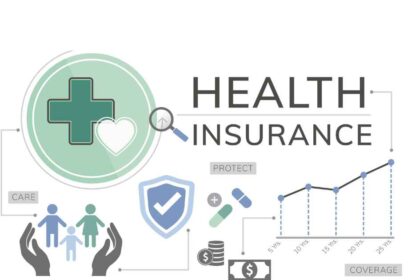From Crisis to Comeback: The Power of Support in Rehabilitation Centers
Life can spiral out of control with a single poor decision, or after a series of traumas and struggles. For individuals grappling with addiction, hitting rock bottom might seem like the end of the road. However, the truth is rock bottom can be the solid ground on which a new life is built. The unsung heroes of this transformation? Rehabilitation centers, where structured care and unwavering support pave the road from crisis to comeback.
Understanding the Depth of the Crisis
Addiction, especially to substances like alcohol, is not just a personal issue it’s a public health crisis. According to the World Health Organization (WHO), over 3 million deaths globally each year are attributed to alcohol abuse. In the United States alone, the National Institute on Alcohol Abuse and Alcoholism (NIAAA) reports that 29.5 million people aged 12 and older had alcohol use disorder (AUD) in 2022.
Behind these numbers are stories of broken families, lost jobs, mental health struggles, and lives derailed. It is in the depths of these crises that many begin to search desperately for alcohol rehab near me or rehab centers, hoping for a glimmer of hope.
The Role of Rehabilitation Centers
Rehabilitation centers serve as a bridge between addiction and recovery a place of structure, safety, and healing. When someone walks through the doors of a rehab center, they’re not just entering a building they’re entering a community of support, where trained professionals are ready to guide them back to a healthy life.
Tailored Treatment Plans
Every individual’s struggle with addiction is unique. Leading rehab centers use personalized treatment plans to address specific needs whether it’s detox, counseling, group therapy, or medication-assisted treatment (MAT). According to the Substance Abuse and Mental Health Services Administration (SAMHSA), integrated treatment plans improve outcomes by addressing both mental health and substance use disorders together.
Emotional and Psychological Support
One of the most powerful elements of rehabilitation is the emotional and psychological support patients receive. Licensed therapists work with patients to uncover root causes trauma, stress, mental illness, or genetics that may have led to addiction in the first place. Peer support groups, such as 12-step programs, foster community and eliminate the stigma surrounding recovery.
Rebuilding Relationships and Life Skills
Rehab isn’t just about quitting alcohol or drugs; it’s about relearning how to live. Patients often participate in workshops that focus on communication, relationship-building, employment readiness, and coping mechanisms to replace destructive behaviors. This holistic approach lays the foundation for a sustainable recovery.
The Power of Support: Why It Matters
Support is the cornerstone of recovery. Without it, relapse becomes not just a risk, but a likelihood. According to a study by the National Institute on Drug Abuse (NIDA), relapse rates for addiction are between 40% to 60%, comparable to chronic diseases such as asthma or hypertension. However, the presence of a strong support system drastically reduces these chances.
Family and Friends as Recovery Partners
Family involvement in rehab has proven to enhance recovery outcomes. When loved ones participate in therapy sessions and education programs, they become partners in the healing process. They learn how to set boundaries, provide encouragement, and support without enabling addictive behavior.
Peer Support and Shared Experience
Being surrounded by others on the same journey is empowering. Group therapy and residential community living offer individuals a sense of belonging that many have lacked. The mutual encouragement and accountability from peers make a significant difference in rebuilding self-esteem and purpose.
Choosing the Right Rehabilitation Center
A simple search for rehab centers near me or alcohol rehab can yield hundreds of results. So, how do you choose the right one?
Accreditation and Credentials
Make sure the center is accredited by reputable organizations such as The Joint Commission or CARF International. The clinical staff should be licensed, experienced, and trained in evidence-based practices.
Range of Services
Look for centers offering comprehensive care, including detox, therapy, dual diagnosis treatment, aftercare planning, and family support services. A center that provides customizable care options is often best equipped to handle complex needs.
Aftercare and Continued Support
Recovery doesn’t end when a program does. Reputable centers emphasize aftercare planning, which includes sober living options, continued therapy, and community integration resources. This phase is crucial in preventing relapse and fostering long-term recovery.
Real-Life Comebacks: Stories That Inspire
Success stories from rehab centers paint a vivid picture of what’s possible. From professionals who returned to fulfilling careers to parents who reunited with their children, these individuals transformed their darkest moments into testimonies of strength. The common thread? They all found support structured, compassionate, and consistent.
Take Anna, a 38-year-old marketing executive who battled alcohol addiction for over a decade. After an intervention by her family, she found a local alcohol rehab near her that offered dual diagnosis treatment for her depression. Today, Anna is five years sober, advocates for mental health awareness, and leads recovery workshops.
Final Thoughts: A New Chapter Begins
Rehabilitation centers are more than institutions they are launchpads for new beginnings. With the right support, guidance, and resources, anyone can transform their crisis into a comeback. Addiction is not a life sentence, and hope is never out of reach.
So, whether you’re searching for rehab centers for yourself or a loved one, know that you’re not just seeking a place you’re seeking a second chance at life.
Resources and Where to Start
If you or someone you know is struggling with addiction, the following resources can help:
- SAMHSA’s National Helpline: 1-800-662-HELP (4357)
- gov: A trusted tool for locating treatment options
- Search alcohol rehab or rehab centers on Google Maps for local facilities and reviews
Speak to your healthcare provider for a referral to a licensed facility





